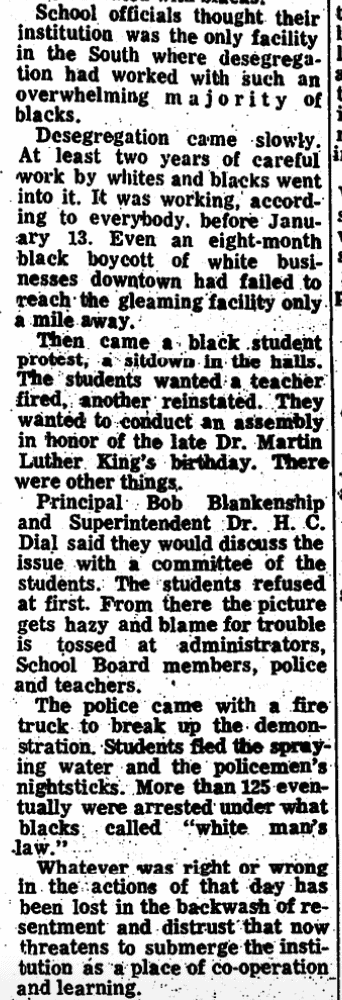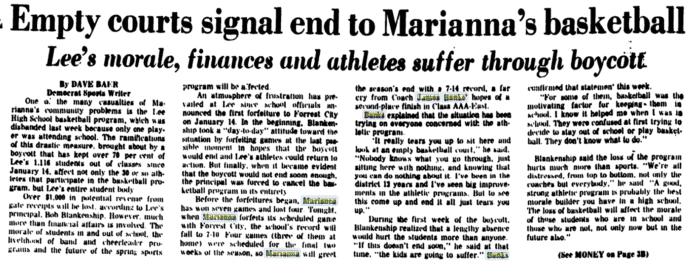Why African-American players went on strike at Marianna Lee High in 1972.
In the middle of February 1972, Lee High School (Marianna) cancelled its basketball season because of a boycott by its African-American players — which comprised the entire team save for one white player.
The boycott began shortly after January 13, when police dispersed about 200 black students from the grounds of the majority-black high school. “More than 125 students, who had held a sit-in in halls and the principal’s office in a demonstration seeking changes,* were arrested on warrants charging them with disrupting school activities, a misdemeanor. Students and parents charged that police and firemen beat and showered demonstrators with water.” (2.11.1972, Arkansas Gazette)
At the time, Lee High School principal Bob Blankenship estimated the boycott would cost the school more than $1,000 in potential revenue from gate receipts. Questions about the tenability of the band, cheerleaders and spring sports also hung over the program.
The school announced its first forfeiture on January 14, 1972. Before that point, Lee had record of 7-4. The first forfeit dropped Marianna Lee High to 7-5 and for the next five games, Blankenship took it game by game with his decision-making. But, with four games left, he decided to cancel the season.
“It really tears you up to sit here and look at empty basketball court,” Lee head basketball coach James Banks told the Arkansas Democrat. “Nobody knows what you go through, just sitting here with nothing. And knowing that you can do nothing about it. I’ve been in the district 13 years and I’ve seen big improvements in the athletic programs. But to see this come up and end it all just tears you up,” added Banks, who nine years later would lead Marianna Lee High to an overall state title.
“If this doesn’t end soon, the kids are going to suffer… for some of them, basketball was the motivating factor for keeping them in school. I know it helped me when I was in school. They were confused at first trying to decide to stay out of school or play basketball. They don’t know what to do.”
The below excerpt is from a Feb. 13, 1972 Arkansas Gazette article:

Interested in race relations and sports in Arkansas? Preview my book African-American Athletes in Arkansas: Muhammad Ali’s Tour, Black Razorbacks & Other Forgotten Stories here.



